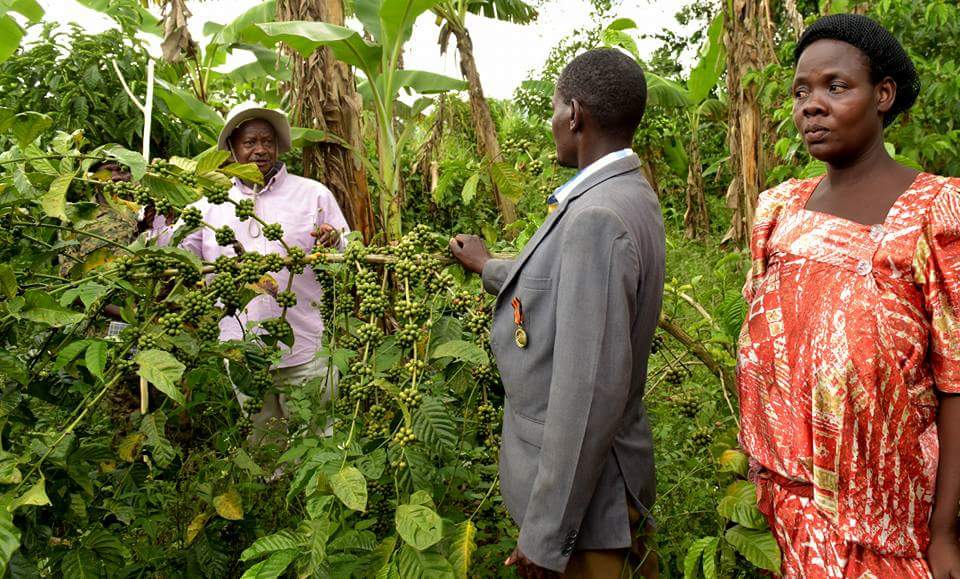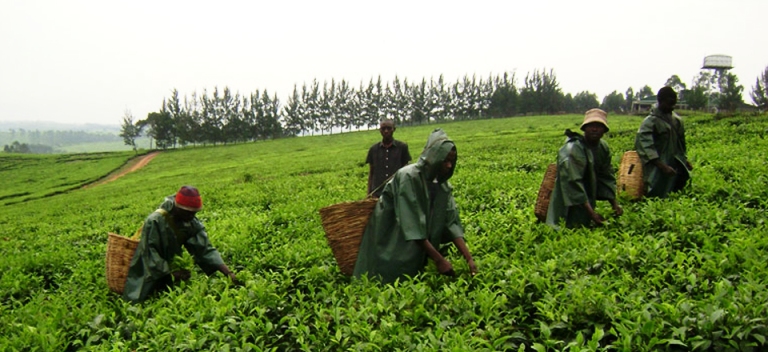The government of Uganda has in the past few financial years allocated more funds to the coffee sector.
However, some Ugandans are yet to appreciate the fact that coffee can transform Uganda into a middle income country if the sector is given due attention and the ongoing campaign well implemented.
Coffee has been and remains Uganda’s leading cash crop. It has been Uganda’s top foreign exchange earner for decades.
Uganda is among the top 10 coffee producers in the world. Uganda produced 3.7 million bags in 2015, earning the country US$444m (Shs1.5trillion) in foreign exchange.
Coffee accounts for 20% of Uganda’s export revenues. It is estimated that 20% of the entire population earn all or a large part of their cash income from coffee.
In fact available information indicates that at least 1.7 million households rely on coffee industry for income but the sector also employs a number of people both directly and indirectly.
It is reported that 200 million coffee seedlings have been distributed in recent years by NAADS/Operation Wealth Creation and more 100 million coffee seedlings are set to be distributed, taking the total to 300 million.
This means in the next five years, Uganda’s coffee production is set to increase exponentially if best agronomic practices and effective management of the coffee sector are implemented.
How Coffee Can Transform Uganda
One acre of coffee- if well managed can give a farmer an average of Shs9m per year.
This is because an acre accommodates 450 seedlings considering spacing of 10ft (3 metres) from one plant to another.
This is for Robusta coffee. With an average of 5kgs per plant, a farmer will harvest 2250kgs of unshelled coffee (kiboko) per season.
With an average price of Shs2000 per kilo, a farmer will earn Shs4.5m. Given that there are two coffee seasons in a year, a farmer could earn Shs9m in a year.
This is at a lower level because it is possible to harvest 10kgs per tree which could earn a farmer Shs9m in a single season.
With two acres, a farmer can earn an average of Shs20m per year. Noteworthy, if you add value to your coffee, the returns will be much higher.
Needless to say, coffee can be grown in many parts of Uganda, meaning that if each household grew a minimum of an acre, poverty would be history in Uganda.
Coffee takes an average of three years to start producing. The costs of maintaining coffee especially after reaching the flowering stage is quite low.
Coffee seedlings are given free of charge to farmers by the government. However, if you want to buy, the price ranges from Shs300-500.
Market indicators are that coffee is likely to remain stable in coming years as more people increasingly consume it globally.
I believe if Uganda ups production and ensures quality, it could become one of the top five coffee producers in the world and consequently foreign exchange earnings from coffee will skyrocket.
To achieve a middle income status lower, one needs to earn over US$1000 annually.
Why Gov’t Mega Project Could Fail
However, the government multi-billion project of distributing coffee seedlings to farmers could fail if not well managed.
For example, many coffee nursery operators are not well trained, thus they lack the best agronomic practices yet they interact with many farmers.
In fact, many farmers get seedlings, but don’t know how to look after them; some simply receive without being told how it will uplift them out of poverty.
There’s a lot of sensitization that needs to be done if we are to produce quality coffee that meets national and international standards.
The limited number of extension workers in the rural farming community will definitely help in failing the coffee sector and NAADS/OWC in general.
Can the coffee sector and agriculture transform without government agricultural extension service providers? It is high time we put tax payers’ money to proper and appropriate use.
We can’t afford to spend billions of shillings on projects like distribution of free coffee seedlings only to fail.
Politics may also play a role in failing this project. This because Uganda Coffee Development Authority (UCDA) gives out some coffee allocations to MPs.
However, for political reasons, MPs will ensure that every farmer that turns up gets coffee seedlings.
Consequently, many walk away with 50 seedlings! Can 50 seedlings help one out of poverty?
Additionally, delayed payments for nursery operators have an adverse effect on the sector.
Some operators get loans and due to delayed payments, they have lost property to banks.
This has led to some pulling out of business. This isn’t good for the sector, and must be addressed with urgency.
Lastly, coffee farmers should be encouraged to grow food crops for food security reasons and diversify to avoid losses caused by any eventualities.






Thanks for encouraging words to our coffee farmers. Farming of coffee can take us far as Ugandans.